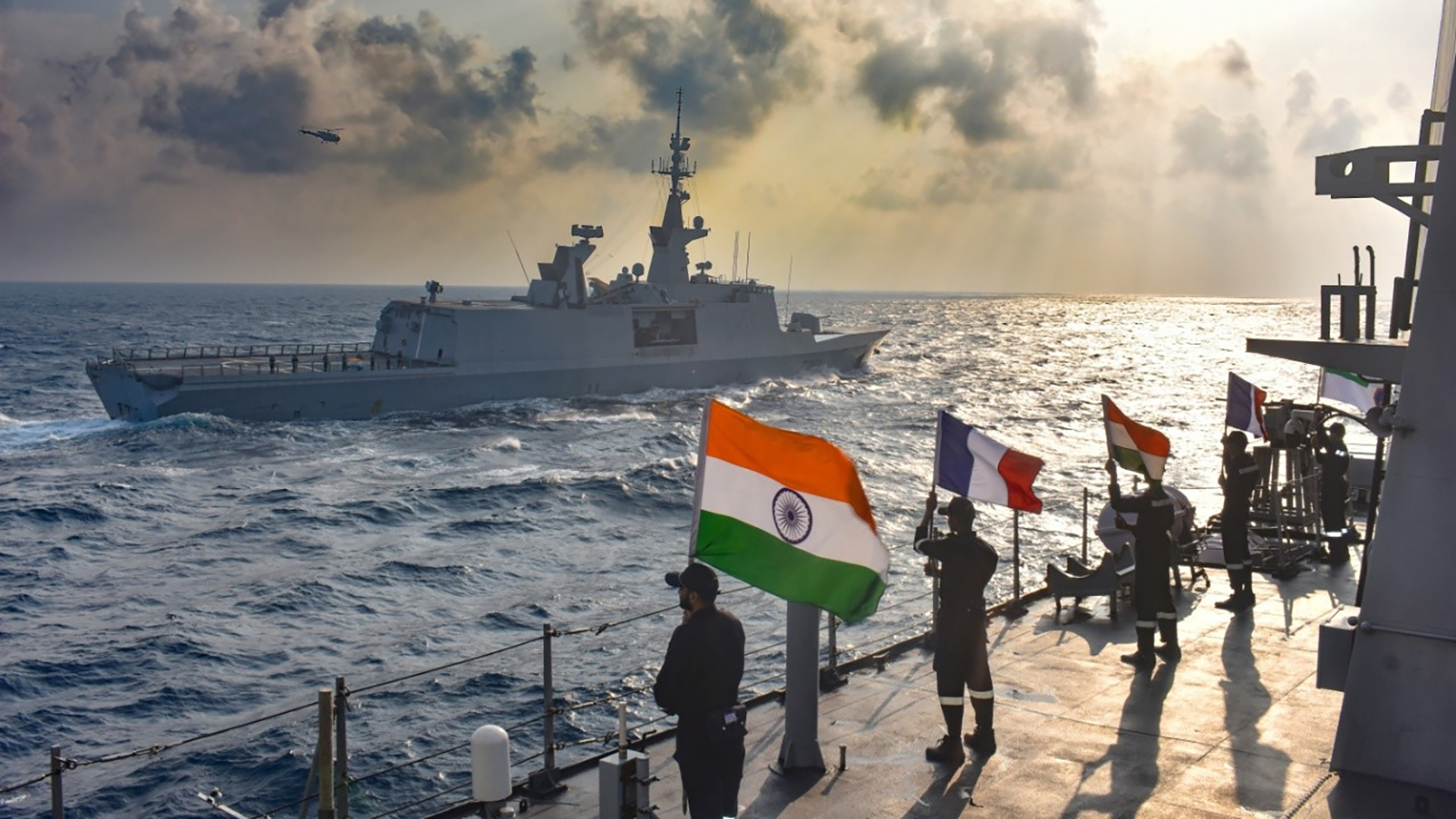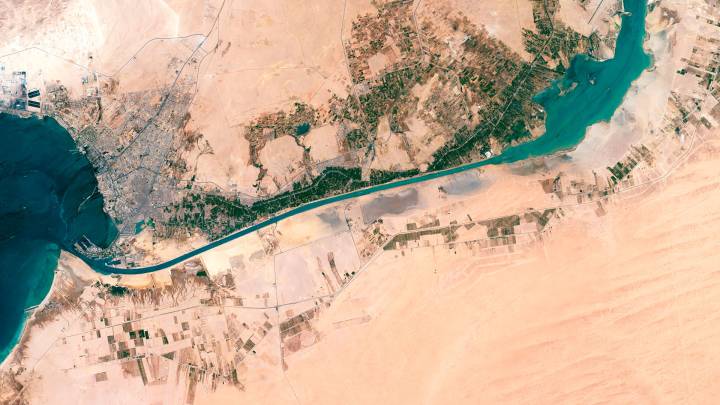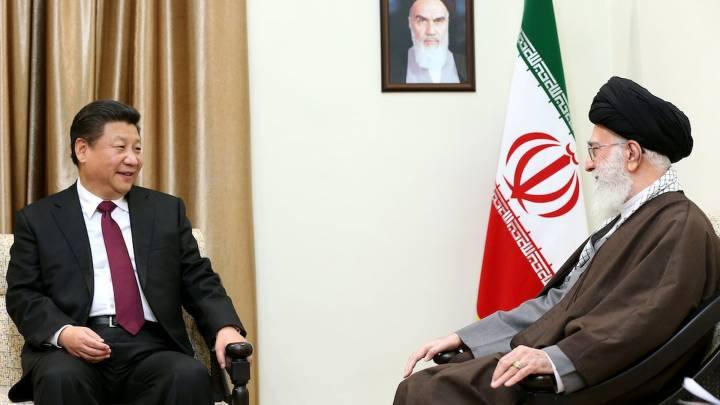Why the Houthis' attacks in the Red Sea have prompted New Delhi to demonstrate a military and diplomatic presence in the Indian Ocean and to assume security policy responsibility - and thus, above all, to distance itself from China's actions in the region.
The ongoing Israel - Hamas - Hezbollah conflict that shows no signs of abating, is going to complete a year since it erupted on 07 Oct 23 following a brazen attack by the Hamas on Israel. The spillover effects of this conflict have reverberated across the world, not least in the maritime domain in the Red Sea region. India, due to its geostrategic location, being a proximate power and resident of the Indian Ocean Region (IOR) can only be a silent observer to the Houthi attacks in the region, to its own detriment.
The continuing attacks on shipping and maritime trade by these non-state actors, using drones and missiles demonstrate their growing capacity and capability to disrupt trade and create insecurity with concomitant effects of pushing prices of oil and other commodities adding to global inflation and disorder. The counter action against these attacks and piracy in the region has underscored the importance of the Indian Armed Forces, especially the Indian Navy and the IAF as responsible and net security providers in the region.
The conflict has also brought into focus India’s deft diplomacy that balances its relations with the players in the region, without sacrificing national interest. India’s civilisational ethos of ‘One Earth, One Family and One Future’ that resonated with the last G-20 Summit theme lends itself to providing humanitarian aid, disaster relief and safeguarding commercial shipping in the area without any vested interests for the larger good of peace and stability in the region.
The United States led maritime coalition formed in December 2023, ‘Operation Prosperity Guardian’ has been unable to deter Houthi attacks that get more brazen with improved technology. China’s presence in the region since 2008 under the garb of countering piracy and ensuring security has been ineffective to say the least. China’s questioning of the US-led global order and its own positioning as a responsible player sounds like empty rhetoric without its actions to ensure the same. China’s presence in the region, including its economic, military and development assistance has primarily been in its own national interest, unlike India.
The absence of any attack on a Chinese merchant vessel coupled with China’s inability or desire to mediate and secure the region does not augur well for China and doesn’t help in building trust in the region. The situation therefore affords a golden opportunity for India to act as a responsible player and a net security provider in the region. The Indian Navy through its ‘Op Sankalp’ has deployed more than a dozen ships to secure maritime shipping in the region.
During the month of December 2023, in a daring operation that involved paradrop of 30 Indian Navy Marine Commandos (MARCOS) and two Combat Ruggedised Raiding Craft (CRRC) by an IAF Globemaster C-17 aircraft, 2600 km from the Indian coast into the Arabian Sea, rescuing cargo vessel, MV Ruen that was hijacked by Somali pirates near the Yemeni island of Socotra. The operation resulted in the safe recovery of all the crew members of MV Ruen and the cargo valued at more than one billion dollars. The Indian Armed Forces have not hesitated in using its assets, from surveillance aircraft and patrol vessels to prevent piracy and deter non-state actors in the region.
China, on the other hand, while expressing its willingness and desire to play the role of a mediator in the larger conflict, has shied away from utilising its resources to ensure peace and stability. While both India and China are not a part of any military alliance or partnership, military actions carried out in good faith towards rescue, relief and saving lives irrespective of nationalities only repose trust in the nation as a reliable and responsible partner. India has always believed in dialogue and diplomacy to resolve conflicts and has shied away from supporting non-state actors, both materially and in their ideology. The US led alliance has failed to deter the Houthis as the Israel-Hamas conflict has inflicted untold misery in the region leading to a humanitarian disaster that in the eyes of the Palestinians, has been abetted by the United States and its allies.
As the world continues to plunge into uncertainty, chaos and disorder with the continuing Russia - Ukraine and the Israel - Hamas conflict that resonates with its ill effects across the world, India cannot afford to be a silent spectator. The existing multi polar world that is characterised by issue-based partnerships that raise the spectre of economic fragmentation and rival trading blocks, India stands out as a lonely voice that continues to believe and abide by a rules-based order.
With global disorder amidst the ineffectiveness of the institutions created to ensure global peace and stability, India will continue to raise its voice underscoring the importance of dialogue and diplomacy and acting wherever it can to ensure peace, stability and safeguarding the global commons including freedom of operations in the Indo - Pacific. The Indian Armed Forces and its diplomatic heft has gained salience through its actions and not on empty rhetoric.
Anil Golani is the Director General of the think tank Centre for Air Power Studies (CAPS) in New Delhi and a retired officer of the Indian Air Force.
Radhey Tambi is a research fellow at CAPS, New Delhi. Her research focuses on the security policies of India, China and the USA in the Indo-Pacific region.




